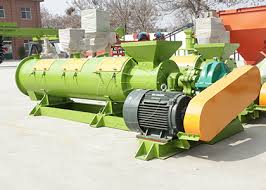Technology has always been at the forefront of human organic fertilizer pellet machine progress, driving innovation, enhancing efficiency, and reshaping the way we live, work, and interact with the world around us. From the invention of the wheel to the advent of the internet, each technological advancement has left an indelible mark on society, transforming the way we communicate, travel, conduct business, and even perceive reality. In this article, we delve into the evolution of technology and its profound impact on our lives.
Early Technological Advancements:
The journey of technology began millennia ago with rudimentary tools crafted from stone, wood, and bone. These early inventions facilitated tasks such as hunting, gathering, and shelter-building, laying the groundwork for human civilization. As societies evolved, so too did technology, with innovations like agriculture, metallurgy, and the wheel revolutionizing daily life.
The Industrial Revolution:
Perhaps the most significant technological leap in human history, the Industrial Revolution, transformed society in the 18th and 19th centuries. Steam engines, mechanized factories, and the proliferation of railways fueled unprecedented economic growth and urbanization, fundamentally altering the way goods were produced and distributed. This period also saw the birth of modern communication with inventions like the telegraph, laying the groundwork for the interconnected world we inhabit today.
The Information Age:
The latter half of the 20th century ushered in the Information Age, characterized by rapid advancements in computing, telecommunications, and digital technologies. The invention of the transistor, followed by the development of microprocessors, led to the miniaturization of electronic devices and the birth of the personal computer. Concurrently, the emergence of the internet revolutionized communication, commerce, and access to information, connecting billions of people across the globe in an unprecedented digital network.
Emerging Technologies:
As we venture further into the 21st century, technology continues to evolve at an exponential rate, with transformative innovations on the horizon. Artificial intelligence (AI), for instance, holds the promise of revolutionizing industries ranging from healthcare and finance to transportation and entertainment, augmenting human capabilities and enabling autonomous decision-making. Similarly, advancements in biotechnology and genetic engineering offer the potential to eradicate diseases, enhance human health, and even extend lifespan.
